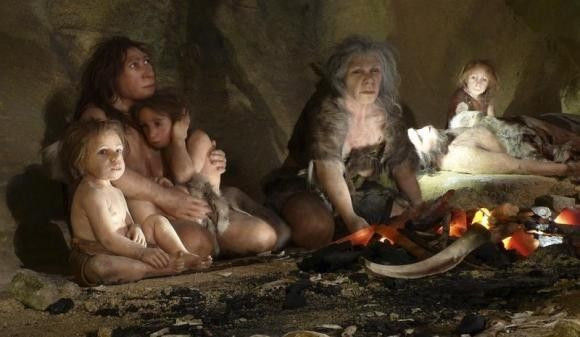Prehistoric Conflicts Improved Human Collaborative Abilities

Sergey Gavrilets, a distinguished professor of ecology, evolutionary biology and mathematics at the University of Tennessee, Knoxville, created a mathematical model that explains how human intellect and how collective action or teamwork co-evolved in time.
In his new study published in the Journal of Royal Society interface, Gavrilets gives emphasis on how human conflicts and man's collaborative behaviour to reach a common goal-shaped civilisation. This can be used in analysing certain patterns in history and current events, even in local issues. For example, how did warfare tactics, global unions and divisions evolve? How do nations play a part in fighting terrorism, the Ebola outbreak, climate change and so forth?
According to Gavrilets's model, intelligence and cooperative behaviour can develop simultaneously to solve problems on collective action in groups and to overcome the costs of having a clever mind. The problems referred to here are the tendency for some individuals to exploit cooperation for their own interests; they are classified as freeriders.
Collaborative ability develops faster when humans are in direct conflict with another entity or group. The rate of improvement depends on the type of contradiction. Conflicts where man opposes another group of humans hasten development of collaborative skills than in cases where man is against nature. For example, people unite for a common cause when faced with consequences brought about by natural disasters. However, cooperation intensifies during between-group competitions because it triggers collaborative behaviour within competing groups. There are other proofs and observations that support the idea that these conflicts influence the development of social instincts.
The study also predicts that if collaborative abilities do not evolve, only a small fraction of the general population cooperates for public good while the rest become free riders.
Lastly, Gavrilets's model does not correspond with other modern theories on when human cooperation emerged in human evolution. The current belief is that teamwork in hunting came first and consequently created conditions for the development of collaboration in between-group conflicts. The professor's model shows the reverse sequence: collaboration in between-group conflicts preceded collective hunting and with-in group coalitions.
Gavrilets said, "Our ability to effectively collaborate with others is largely responsible for what our species came to be. The big question is how this ability first evolved when there are large metabolic and physiological costs related to human brain size and when collaboration can be easily undermined by free riders. The model offers an answer which emphasizes the role of between-group conflicts in shaping unique human features."





















